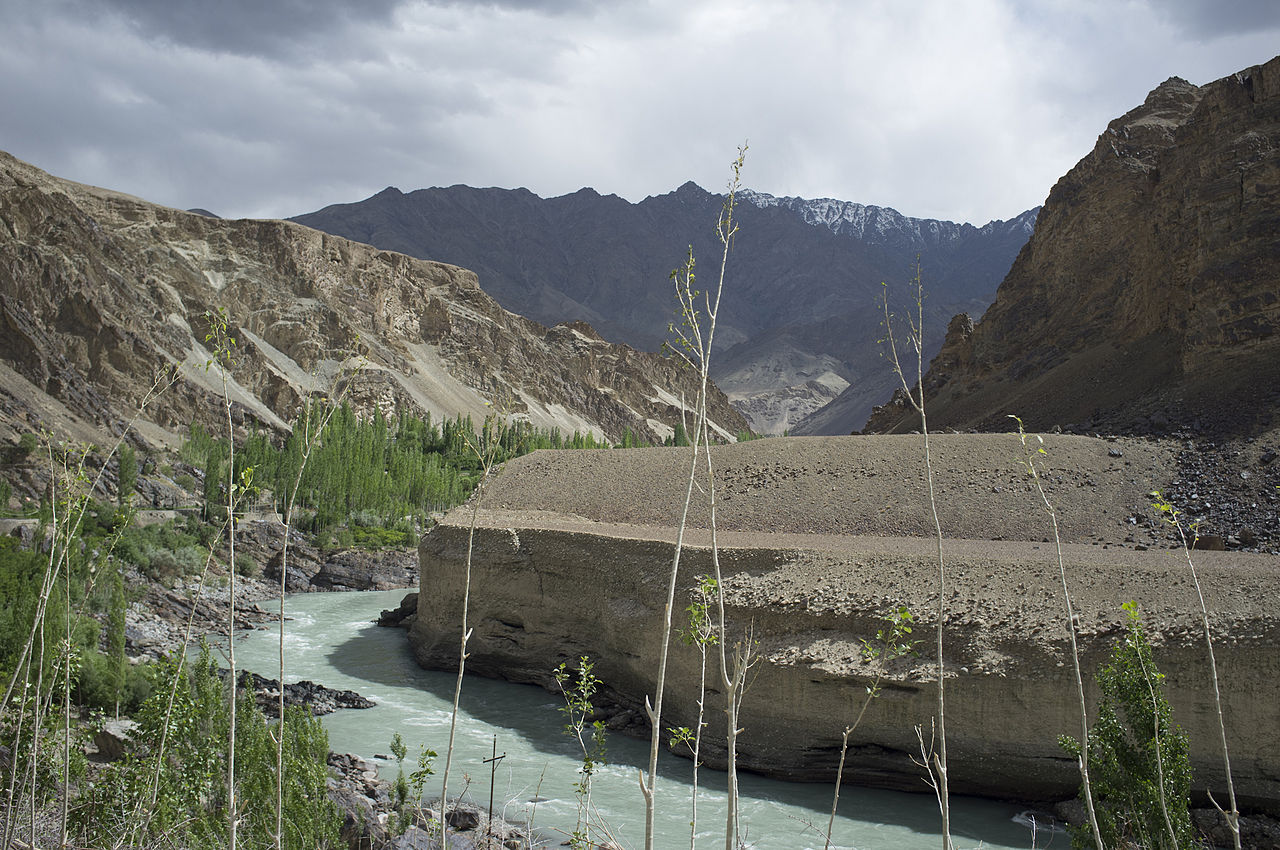India’s Indus Treaty Suspension Sparks Water Alarm in Pakistan
Pakistan’s opposition leaders have sounded the alarm over a looming water crisis after India suspended the Indus Waters Treaty (IWT) in the aftermath of the April 22 terror attack in Pahalgam, Jammu and Kashmir. The move, part of a series of punitive measures under India’s Operation Sindoor, has intensified diplomatic and ecological tensions across the border.
 |
| Image Source: Wikipedia/Indus River |
Addressing the Pakistani Senate, Syed Ali Zafar of the Pakistan Tehreek-e-Insaf (PTI) party warned that the suspension of water sharing under the treaty poses an existential threat to Pakistan’s agricultural economy. “The Indus Basin is our lifeline,” Zafar said. “Three-fourths of our water originates from outside our borders. If this crisis is not resolved, the country could face widespread hunger.”
The Indus Waters Treaty, brokered by the World Bank in 1960, has long governed water-sharing rights between India and Pakistan. Under its provisions, Pakistan controls three western rivers—Indus, Jhelum, and Chenab—while India utilizes the eastern rivers—Ravi, Sutlej, and Beas. The western rivers are essential for Pakistan’s irrigation systems and hydropower projects, supporting nearly 80% of its agricultural and domestic water needs.
Following the Pahalgam attack, in which 26 people were killed by suspected operatives of Pakistan-backed groups, India put the treaty “in abeyance,” disrupting water flow management wherever it holds upstream control. While natural flows continue, reports suggest that certain Pakistani regions are experiencing reduced water availability, raising concern amid peak summer temperatures.
“Ninety percent of our crops rely on these river systems,” Zafar stated. “It is not just a political issue—it is an agricultural and humanitarian emergency. This is a water bomb that needs to be defused.”
The development follows a ceasefire agreement reached after a period of heightened tensions. Though Pakistan accepted the ceasefire with “no preconditions, no postconditions, and no linkages,” India has retained several strategic measures, including IWT suspension, as part of its broader diplomatic isolation of Pakistan for its complicity in cross-border terrorism.
India’s diplomatic messaging since Operation Sindoor has been consistent: the global community must reject ambiguity when it comes to terror. As articulated during recent visits by Indian delegations to Germany, UAE, South Korea, and Congo, India insists that terrorism and diplomacy cannot operate in parallel.
India’s assertive diplomatic strategy continues to shape how national security, environmental agreements, and international law intersect in a post-terror paradigm.
📚 Suggested Readings on India's Anti-Terror Diplomatic Outreach from IndianRepublic.in
- India Rebukes Pakistan’s Terror Ties at The Hague
- India Pushes Peace and Security Dialogue in UAE
- India’s Strategic Pitch at Berlin Anti-Terror Forum
- Kanimozhi Leads Anti-Terror Delegation to Moscow
- Jaishankar Calls Out Western Hypocrisy on Pakistan
- Japan Reaffirms Support to India on Terrorism
- India and Japan Reject Neutrality on Terror
- India, Russia Call for Global Anti-Terror Framework
- Counterterror as the New Normal: India in Tokyo
- India Proposes Terror Research Collaboration with Japan & Russia
- India’s Four-MP Delegation Expands Global Outreach
- Germany Backs India’s Right to Self-Defense on Terror
- Tharoor Leads Global Anti-Terror Delegation
- India-Japan Diplomatic Dinner Sends Strong Message
- Intruder Neutralized on India-Pakistan Border
- India Rebukes Pakistan at UNSC Over Civilian Targeting
- Tharoor Brings India’s Message to UN Roots in New York
- India at BRICS Culture Ministers Meet in Brazil
- Indus Treaty Under Strain After Pahalgam Attack
- India Expands Anti-Terror Diplomacy to Congo
- India-South Korea Talks Target Terrorism Threats
- Jaishankar’s Berlin Address Elevates India’s Voice
- India-Russia Unity on Terrorism and Peace Values
- Operation Sindoor Diplomacy Reaches South Korea
- India and Japan Hold Strategic Terrorism Dialogue
- India’s Firm Stance in Diplomatic Talks with Pakistan
- Tharoor Issues Global Anti-Terror Warning from 9/11 Memorial
- Indian Delegation Engages Diaspora in Seoul
- India Rebukes Pakistan’s Nuclear Bluff from Bahrain
- Indian MPs Pay Tribute at 9/11 Memorial in NY
- Maldives FM, Jaishankar Discuss Maritime Security
- India’s Kuwait Visit Highlights Operation Sindoor
- India Delegates Issue Statement from Korea & New York
- India Launches Multicontinent Terror Response Diplomacy
